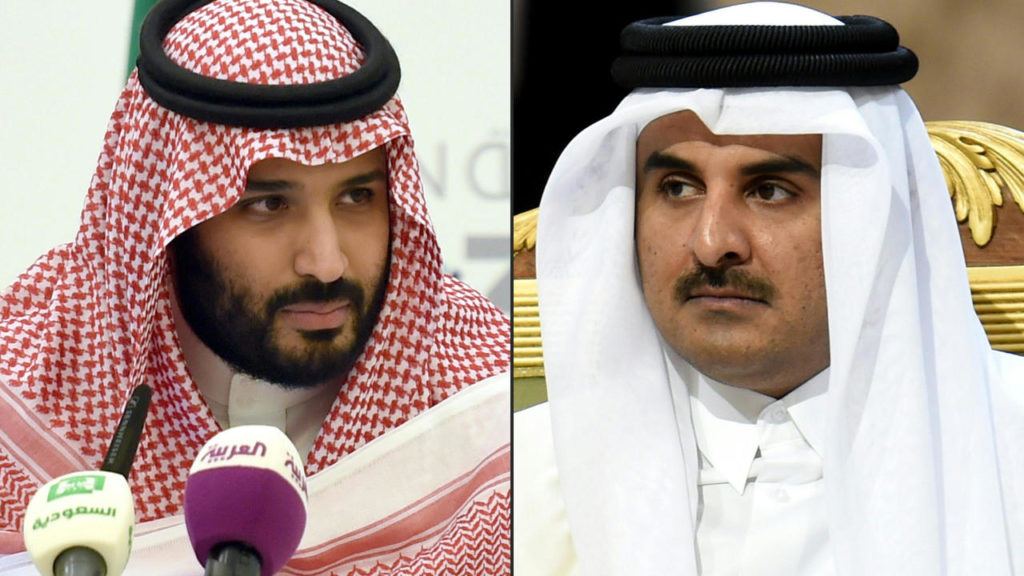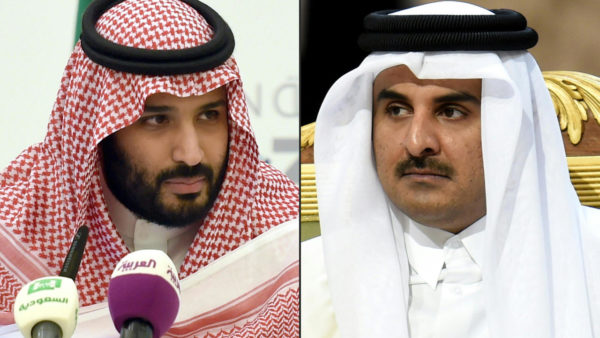
Saudi Arabia will reopen its borders and airspace to Qatar, the Kuwaiti foreign minister said Monday, more than three years after Riyadh sealed both and led an alliance to isolate Doha.
The bombshell announcement came on the eve of a six-nation Gulf Cooperation Council (GCC) annual summit in the northwestern Saudi Arabian city of Al-Ula, at which the dispute was already set to top the agenda.
“Based on (Kuwait’s ruler Emir) Sheikh Nawaf’s proposal, it was agreed to open the airspace and land and sea borders between the Kingdom of Saudi Arabia and the State of Qatar, starting from this evening,” said Kuwaiti Foreign Minister Ahmad Nasser Al-Sabah on state TV.
Riyadh led a coalition of countries in the Gulf and beyond that cut ties with Doha three and a half years ago, charging that it was too close to Tehran and backed radical Islamist groups — allegations that Qatar has always denied.
Washington has intensified pressure for a resolution to what Doha calls a “blockade”, insisting Gulf unity is necessary to isolate US nemesis Iran as the curtain falls on Donald Trump’s presidency.
The GCC is a bloc that consists of boycotting countries Saudi Arabia, the United Arab Emirates and Bahrain, neutral Kuwait and Oman, and Qatar.
Eyes on Emir
The Saudi-led GCC hawks, along with Egypt, in June 2017 closed airspace to Qatari planes, sealed borders and ports, and expelled Qatari citizens.
An information battle raged online with the two camps trading allegations and barbs, deepening the enmity.
The diplomatic freeze has only served to make Qatar more self-sufficient and push it closer to Iran, observers say. It has also hurt Saudi strategic interests.
Analysts say that Riyadh lifting the ban on Qatar using its airspace, borders and waterways could have been at the insistence of Doha before agreeing to send its ruler Emir Sheikh Tamim bin Hamad Al-Thani to the summit.
The emir has skipped the annual GCC gatherings since the diplomatic crisis erupted in 2017, and many eyes have been on whether he attends this time around.
There has been no announcement yet on whether he will attend.
Any rapprochement at the summit may prove to be preliminary, analysts and diplomats had said, and few had expected a comprehensive resolution to the row.
At the start of the crisis, the boycotting countries issued a list of 13 demands for Doha, including the closure of pan-Arab satellite television channel Al Jazeera, undertakings on “terror” financing, and the shuttering of a Turkish military base in Qatar.
Qatar has not publicly bowed to any of the demands.
US national security adviser Robert O’Brien had said in November that allowing Qatari planes to fly over Saudi Arabia via an “air bridge” was a priority for the Trump administration.
Iranian media has said that Qatar has been paying in excess of $100 million annually to use Tehran’s airspace to bypass Saudi Arabia.
In return, analysts have suggested Qatar could agree to tone down the coverage of Saudi Arabia by its media, including by Al Jazeera.
(AFP) / FRANCE24)


Leave a Reply
You must be logged in to post a comment.